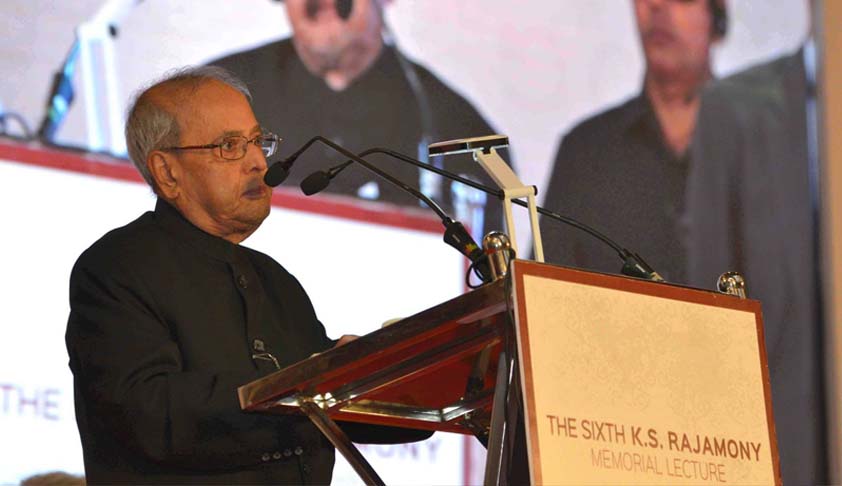President Pranab Mukherjee Calls For Concerted Efforts To Uphold Constitutional Values
Vidushi Sahani
5 March 2017 10:24 AM IST

Next Story
5 March 2017 10:24 AM IST
Harking back to India’s inspiring journey from 0 per cent growth rate to the world’s fastest growing economy over the past 70 years, President Pranab Mukherjee spoke at length on the vitals of our growing and democratic nation on a road fraught with challenges.Speaking on the occasion of 6th KS Rajamony Memorial Lecture, held in honour of eminent lawyer and former member of the Kerala...
